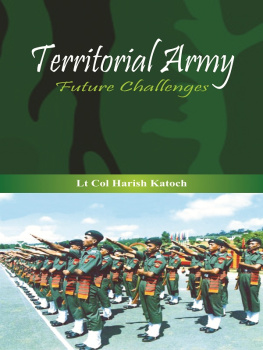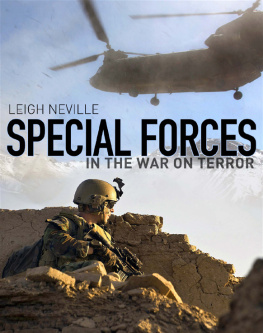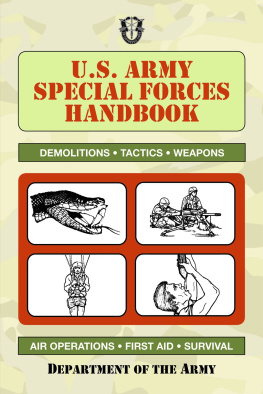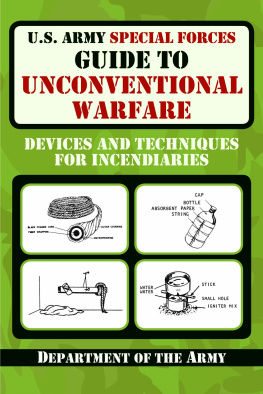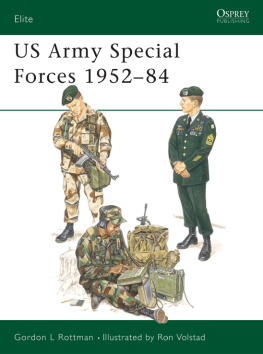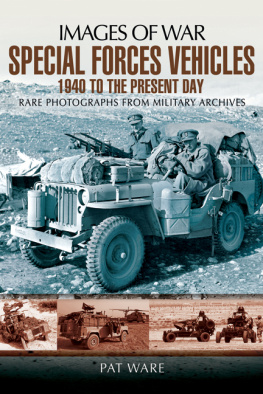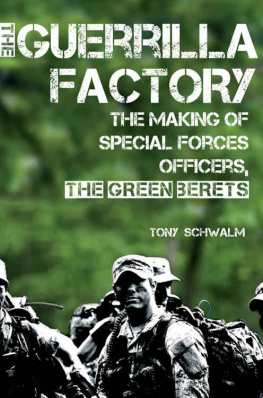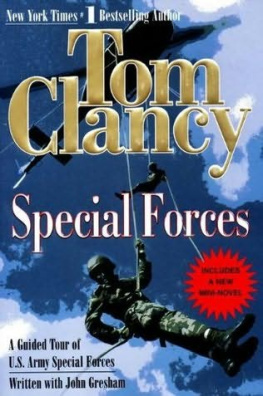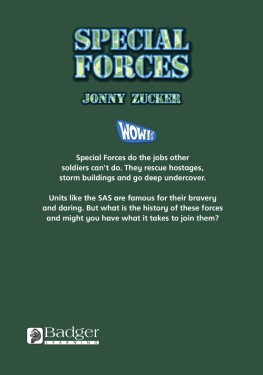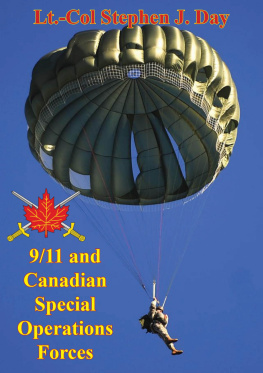INDIAS SPECIAL FORCES
History and Future of Indian Special Forces
Ebook published by
Vij Multimedia
A division of Vij Books India Pvt Ltd
(Publishers, Distributors & Importers)
2/19, Ansari Road, Darya Ganj
New Delhi - 110002
Phones: 91-11-43596460, 91-11- 47340674
Fax: 91-11-47340674
e-mail : vijbooks@rediffmail.com
web: www.vijbooks.com
ISBN: 978-93-82573-59-3
Copyright 2013, United Service Institution of India, New Delhi
All rights reserved
No part of this book may be reproduced, stored in a retrieval system, transmitted or utilised in any form or by any means, electronic, mechanical, photocopying, recording or otherwise, without the prior permission of the copyright owner. Application for such permission should be addressed to the publisher.
The views expressed in the book are of the authors and do not necessarily represent the views of the organisation that they belong to or of the United Service Institution of India.
Nothing is Permanent, says Bhagwad Gita.
implying
Only Change is Constant
Indias Special Forces and Concept of their Employment must change with changing geostrategic realities.
Dedication
This book is dedicated to all the men who ever associated or served in the Indian Special Forces and their families.
Authors Note on Sources
Writing about Special Forces is a delicate subject since very few records are publicly available. The bulk of the reporting for this book has come from interactions with people who were associated with the Special Forces. Where certain books or papers have been used, they have been cited accordingly.
Foreword
The nature of war has undergone dramatic changes in the past decade and countries are striving to ensure that their military is combat ready at all times to fight the right kind of war in respect of their concepts, organization, equipment, and training. We are also similarly engaged in the context of our security environment. Many of the wars today are being fought by proxy and the methods employed by both sides are un-conventional. A lesson from the recent Afghan and Iraq Wars is that victory is a chimera; counting on todays enemy to yield in the face of superior force makes about as much sense as buying lottery tickets to pay the mortgage - you have to be really lucky. In most of the conflicts today pure military solutions simply do not exist and neither can the military kill their way out.
In the new era of conflict Special Forces have a major role to play, they give their governments a variety of options like controlling the escalation, overt or covert operations with deniability, reaching the adversarys vulnerable areas and limiting collateral damage when targeting critical strategic points. Special Forces has been an idea whose time had long come, however it is only in recent past that our military leaders and higher defence authorities have recognized their vast potential. It is not as easy as introducing another weapon in our armoury, it has to be regarded as a Weapon of War and there has been very little written about the concepts, organization and employment of our Special Forces to fit that role. This book titled Indian Special Forces has come at the right time and there could not be a more appropriate person to author than Lt Gen Prakash Katoch. His first-hand experience of over two years as Commanding Officer of 1 Special Forces Battalion in actual operations and his subsequent experience at higher echelons of Special Forces management make him the ideal person to write this treatise.
I had the privilege of having all the three original Special Forces battalions, 1 Para Commando, 9 Para Commando and 10 Para Commando as part of the Indian Peace Keeping Force (IPKF) under my command. They were then designated as Para Commandos and we had no doctrine on the employment of Special Forces; we had to learn it on the job. Indeed initially most of the division and brigade commanders tended to regard them as an elite infantry additive to their battalions and tended to use them accordingly as regular infantry for the more difficult and dangerous tasks. It was difficult for many commanders to differentiate the role of Special Forces from that of para commandos and we had to put a stop to that straight away, and ultimately over two years of continuous operations the concept of their employment was finely honed and it had a defining impact on the Sri Lanka Campaign. One aspect I learnt in the campaign above all else was that the Special Forces are a strategic weapon to be used at the right time to tilt the battle in your favor.
This book is a holistic study of the Special Forces tracing their origin from the para-commandos to their ultimate reincarnation as Special Forces. The chapter on their future role and employment is highly insightful. I recommend the book for all students of conflict studies and analysts who have an interest in Indias security issues.
-Lt Gen AS Kalkat, SYSM, PVSM, AVSM, VSM (Retd), Former Overall Force Commander and GOC IPKF, and later Army Commander ARTRAC
Preface
Special Forces are usually shrouded in half mysteries, their aura and lure overpowering. India is no different. In the late Eighties you could see security guards posted outside shops in Connaught Place, New Delhi with rakish maroon berets sporting Special Forces or Commando shoulder titles. While some tasks of Special Forces, commando forces and airborne forces may overlap at times that axiomatically is acknowledged globally, there has been some confusion in India in distinguishing between these forces; mostly in media but at times even in some military circles. Two decades back there was news of a Special Forces Regiment having been formed in the Indian Army and only a couple of months later disbandment of this fledgling Regiment. The Navy and Air Force established their own Special Forces in time, as also some other organizations came up tasked with special missions. That apart, periodically, mention of Special Forces keeps coming up in the media, mostly during conflict situations, successes in counter insurgency and anti-infiltration operations or instances like the spectacular US Special Forces raid that killed Osama-bin-Laden deep inside Pakistani territory, with questions aired as to capabilities of our own Special Forces to undertake similar missions. In recent past, media has reported one of the important recommendations of the Prime Minister appointed Naresh Chandra Committee for establishment of a separate Special Forces Command. A very careful analysis is needed as to why India needs Special Forces, in what measure and what form especially in an environment of strategic ambiguity in the absence of a national security strategy, national security objectives undefined and blending of military with diplomacy yet to be achieved.
Acknowledgements
First of all, I would like to thank Lieutenant General PK Singh, PVSM, AVSM (Retd), Director, United Service Institution (USI) of India and my erstwhile Army Commander under whom I had the privilege to command a Strike Corp, for being the very inspiration behind this book and in awarding me the Field Marshal KM Cariappa Chair of Excellence for the year 2011-2012. He was also kind in sponsoring me for the Middle East Special Operations Commanders Conference (MESOC 2012) held at Amman, Jordan in May 2012, which provided me the opportunity to interact with numerous special operations commanders and operatives and know about Special Forces operations in Iraq, Afghanistan and rest of the Middle East. I would also like to place on record the guidance provided by Major General YK Gera (Retd), Consultant (Research), USI in undertaking this research.



